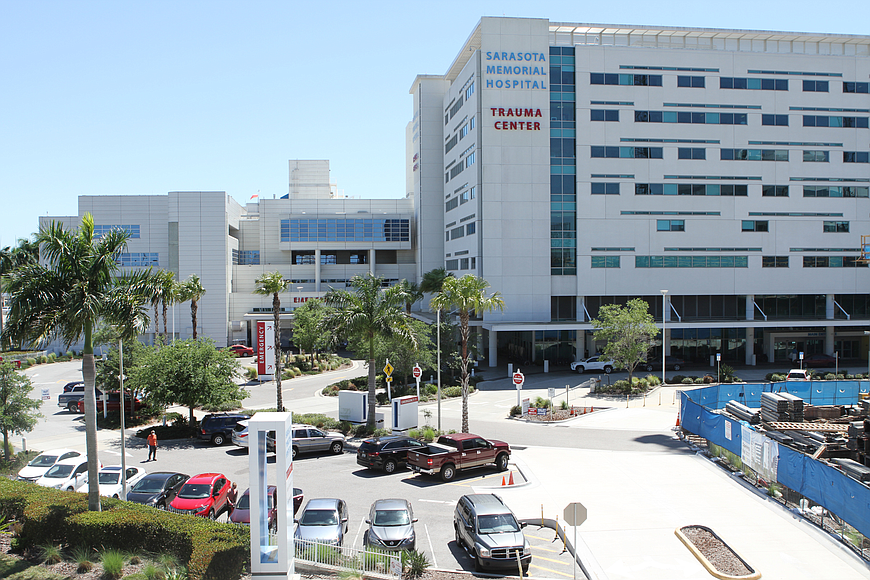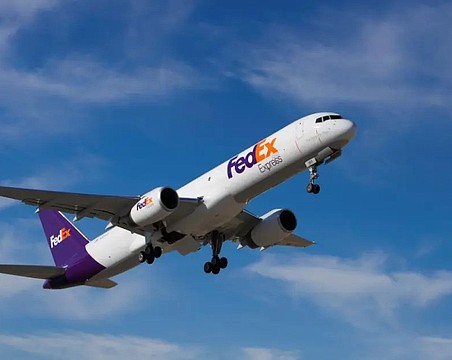Two 90-year-olds — one in Sarasota, the other in Colorado — were lamenting last Saturday the state of affairs in the U.S.
The Coloradoan said: “Our generation, the one before us and the one after us worked to build up this great, modern economy over the past 100 years, and they’ve managed to kill it in one month.”
“They” are the political class and the technocrats in Washington, D.C.; the nation’s sheeplike governors, mayors and bureaucrat city managers — all of whom parade in front of the TV cameras and try to outdo their peers with their authoritarian orders for the “health and safety” of their citizens. Emotions and computer models over facts.
High up there with all of them: the national media. Give them a crisis, no matter how small, and they feast like hyenas on the smell of blood, especially President Donald Trump’s blood. They froth too much.
To that end, a lot of you aren’t going to like what follows, but here goes:
The political classes and media have blown COVID-19 way out of proportion. The medicine they have dispensed across the country is worse than the virus itself.
They need to take a breath, to step back from the panic and to start in earnest to sharpen plans and begin reopening the economy — especially in those areas where the coronavirus is not a crisis or a threat.
Governors and mayors and city and county commissioners need to face the fact the U.S. is now in a recession. To be sure, Florida is. And how much social and economic destruction that will bring depends on the actions of the political class starting now.
The man from Colorado above is totally right. The politicians and media created a panic that has inflicted pain on 99.88% of the U.S. population. Their lives in exchange for: As of April 15, 601,472 Americans with confirmed cases of COVID-19 and 24,429 deaths, according to Johns Hopkins University.
Together those two groups make up 0.19% of the U.S. population.
COVID-19 in perspective
Mind you, we know: All lives matter. But consider some perspective.
The following are monthly deaths in the U.S.:
Heart disease: 54,000
Cancer: 50,000
Bronchitis, emphysema: 14,000
Stroke: 12,000
Alzheimer’s: 10,000
Diabetes: 7,000
Drug overdoses: 5,600
Flu/pneumonia: 4,700
That’s 157,000 a month.
COVID-19 deaths: 12,000 since February.
As commentators Bill Bennett and Seth Liebsohn wrote in RealClear Politics:
“Where is the daily mortality count [on those other causes of death]? The blaring headlines? The upending of the country?
“Did we ever suggest shelter-in-place orders to clean the streets of illegal drug activity or shut down industries? … Of course not, though its high body count and cost affects a great many more families and businesses.”
You’ve seen the economic toll — the skyrocketing unemployment claims. These are all able-bodied families whose mental states now are consumed by the fear, anxieties and, especially, the uncertainties of: “How am I going to pay my bills?” “Will we have money to feed the family?” “Will we have money to keep buying my medicines?” “Will my job come back?”
Small-business owners are measuring daily how much longer their cash will keep them in business.
What about the federal bailout-relief money for employers and employees? One banker told us: If you’re counting on that money to save your business, don’t.
Picking up takeout Saturday night, we saw the restaurant owner bringing bags of food to her customers on the street. “I’m exhausted,” she said. You could tell it. “If I stop, I’ll cry.” She’s hanging on day by day.
Multiply that by 836,000 — the number of restaurants in Florida.
Look inside the households of working parents with school-age children. We’ve heard from two mothers describing the high-level frustrations of trying to manage their jobs and have their children finish their lessons from the confines of their homes.
Think of the toll this is taking on families. Recessions always bring strife that goes beyond money — depression, suicides, drug abuse, domestic violence. This is nationwide.
We received a text Sunday from a weekly churchgoer: “My church had a new program for watching Palm Sunday services. If this is what passes for a church today, I can live without it.” It’s difficult to accept that the politicians and religious leaders have shut the doors to houses of worship. You can’t even go in to kneel and say a prayer. Surely, God is distressed as well. This has a bad effect on society.
All of this is now.
Cascading effects
Here is what is still to come:
The jobless are not paying or are asking for breaks on their mortgages, rent, car payments and credit card payments. Small-business owners are telling their landlords they won’t be paying rent for the next few months, or several months. That means the landlords won’t be paying their mortgages, either. And the investors who are holding the mortgage-backed securities won’t be getting their monthly payments and interest.
The next real estate recession has begun. Joel Ross, a Longboat Key resident and owner of Citadel Realty, a national advisory and investment firm, told us residential resales and homebuilding pretty much will come to a halt. “Banks won’t make mortgages because they won’t be able to price the real estate.” Values will decline. “It’ll be a slow climb back,” Ross said.
The Florida hotel industry will suffer more than any other sector. Ross used the term “obliterated.” Hotel owners will use up reserves to stay open and then be faced with the need for cash to persuade travelers that their hotels are clean and safe.
If there is cause for economic hope when this crisis ends, you can link it two things:
Consumers’ savings-to-debt ratios going into the crisis were at their best levels in decades.
And if the federal government indeed makes them whole with the $2 trillion or more in rescue money, consumers will have money again.
But just as no one knows what will stop COVID-19, or when it will stop, no one knows how the economy will come back — in a “V,” fast and strong, or in a “U,” slow and long.
What is the COVID-19 goal?
For the political class — president, governors, legislatures and local government commissioners and managers, this is the time to act.
Yes, every level of government should be doing what the private sector has been doing: cutting expenses and personnel in expectation of declining sales tax revenues and property values.
That’s expected.
More important: All of these top public officials should answer these crucial questions:
What is the goal with COVID-19? What will constitute realistic success — a decline in new cases over, say, a seven-day period? Eradication?
Who will define what “safe” is? The governor? Mayors? The D.C. medical technocrats? Or should all Floridians go back to the freedom of deciding on their own, using their own rational mind?
For starters, elected officials should use facts, not the opinions and emotions of cable news talking heads.
In Florida, as it is throughout the U.S., a one-size-fits-all, stay-at-home approach doesn’t make sense. For instance, three counties — Dade, Broward and Palm Beach — account for 57.5% of the COVID-19 cases in Florida. Forty-six of Florida’s 67 counties have fewer than 100 cases.
It’s obvious from the distribution of cases that Gov. Ron DeSantis should have a two-pronged approach — tougher restrictions in South Florida, Florida’s epicenter, less so around the state.
Let consumers decide
Except for those three, he should lift stay-at-home orders throughout the state, starting with the least affected counties onward. Do it measuredly, but quickly.
Likewise, give local school boards the authority to reopen. Children are the least vulnerable. Let the districts work out the logistics of educating the children who choose not to return.
Likewise, lift all the orders preventing businesses from reopening. Reopen dining in restaurants. Business owners are smart enough to decide what’s best for their customers, their employees and their business. And customers are smart enough to decide what’s best for themselves.
Businesses and consumers can and will make their own decisions about risk. That’s how freedom and capitalism work. Businesses are incentivized to operate responsibly, so they attract customers and employees. The alternative is shutdown.
Of course, there is no such thing as total safety. About 170,000 Americans a year die from accidents. What’s more, according to Just Facts, accidents are about 140 times more lethal to Americans than the worst-case projections for COVID-19.
No doubt, there will be many readers who think these ideas are heretical and nuts. But over decades of witnessing governments in action and American ingenuity and compassion, you have to have more faith in the American people and the mutually beneficial give-and-take of the free market than in the politicians who are willing to make us slaves to their technocrats and dictates.
As Henry Ford once stated: “Any man who thinks he can be happy and prosperous by letting the government take care of him had better take a much closer look at the American Indian.”
It’s time public officials shift their focus: To be sure, help the 1% affected by the virus. But not at the expense of the health, hopes and lives of the other 99%.






